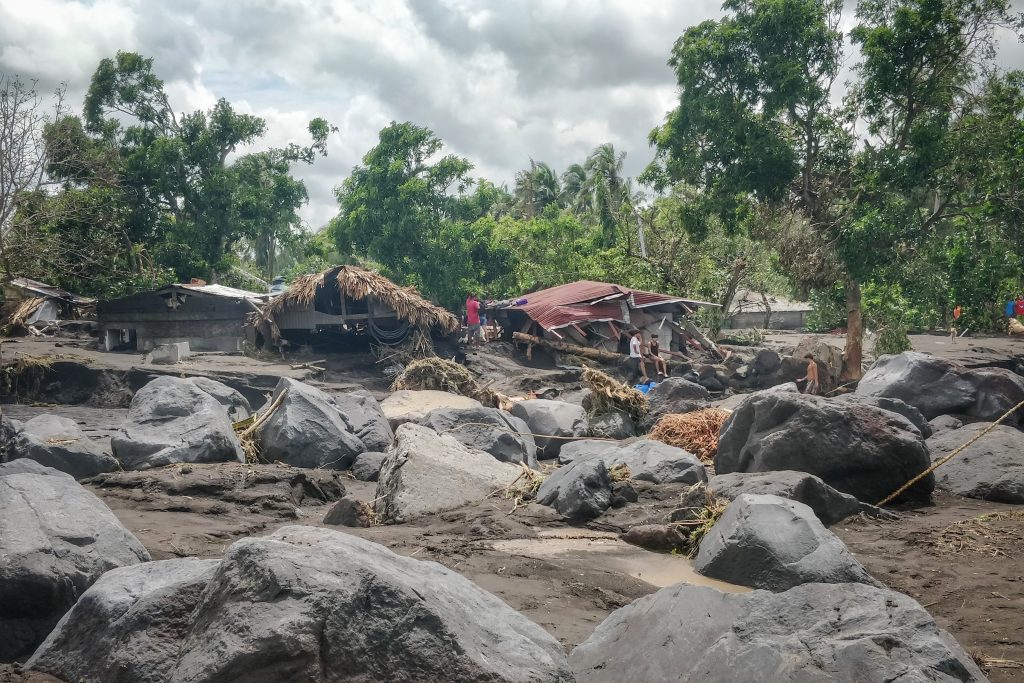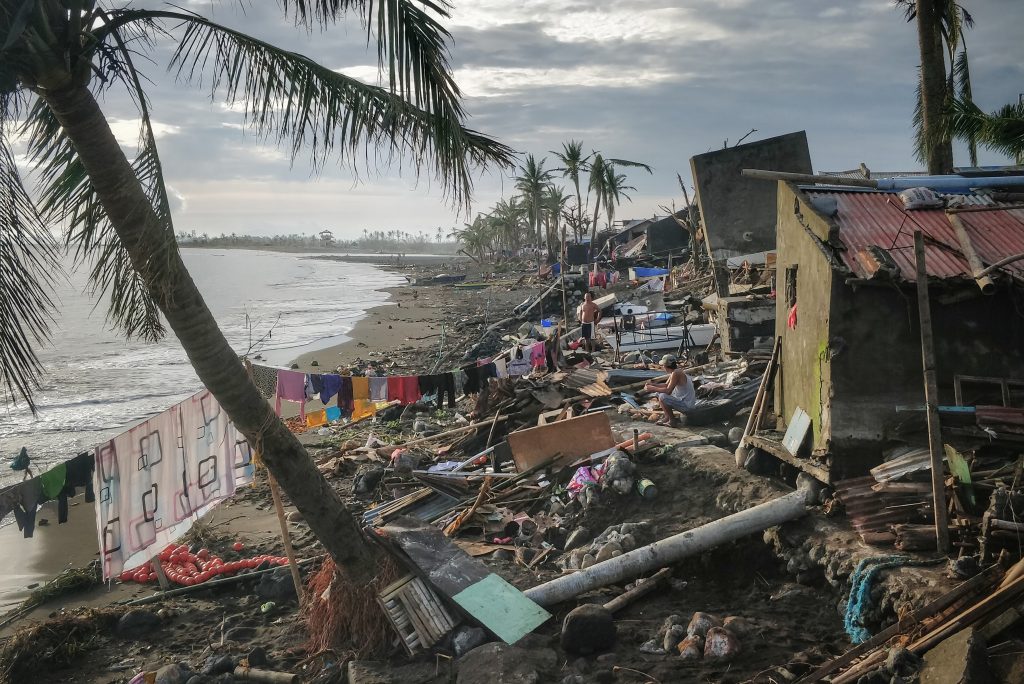
Several faith-based groups in the Philippines blamed “ecological sinners” for the devastation brought about by super typhoon “Rolly” (international name: Goni) that slammed parts of the country on November 1.
About two million people have been reported affected by “Rolly” that left at least 20 people dead and thousands of others homeless.
“This is not an act of God,” said Bishop Gerardo Alminaza of San Carlos, lead co-convener of Eco-Convergence, a network of church and civil society groups.
“We cannot claim that the existence of this harsh weather condition is force majeure, which humans have no control. We are definitely to blame for it,” said the prelate.
Bishop Alminaza said strong typhoons are “effect(s) of the decades-long plunder of the environment” and “aggravated by the world’s largest carbon producers.”
The bishop from the central Philippines said the country and the poor are “paying for the ecological debts” incurred by the world’s largest polluters and proponents of destructive industries.
Rodne Galicha, executive director of Living Laudato si’, said the devastation of super typhoon “Rolly” “underscores the need to call for climate justice and for these ecological debts to be settled.”
He said world leaders and policy-makers “must recognize that there is a climate emergency” and “immediately act to bring out concrete ecological actions.”
In 2013, the United Nations Framework Convention on Climate Change created the Warsaw International Mechanism for Loss and Damage.
It has defined loss and damage to include “harms resulting from sudden-onset events (climate disasters, such as cyclones) as well as slow-onset processes (such as sea-level rise).”
The present mechanism, however, focuses only on research and dialogue rather than on accountability and compensation.
Galicha said it is high time for the international community to make the world’s largest polluters accountable for the loss of lives and properties in countries affected by the climate crisis.
“The largest polluters, including those who extract our natural resources and destroy our forests, must pay for the damages brought about by this typhoon,” he said.

Father Warren Francis Puno, head of the ecology ministry of the Diocese of Lucena, said the Philippine government must also revisit and review “policies that facilitate ecological sins.”
“The country has a lot of laws and policies that are in favor of big corporations,” said the priest.
He said the country must allow its natural resources “to heal and regenerate,” adding that “these natural resources are our barrier against strong typhoons.”
Authorities said the country is expecting one or two more typhoons to enter the Philippine Area of Responsibility before the year ends.
In October, the Philippine Atmospheric, Geophysical, and Astronomical Services Administration announced the onset of La Niña that would last until the first quarter of 2021.
Source: Licas Philippines
0 Comments